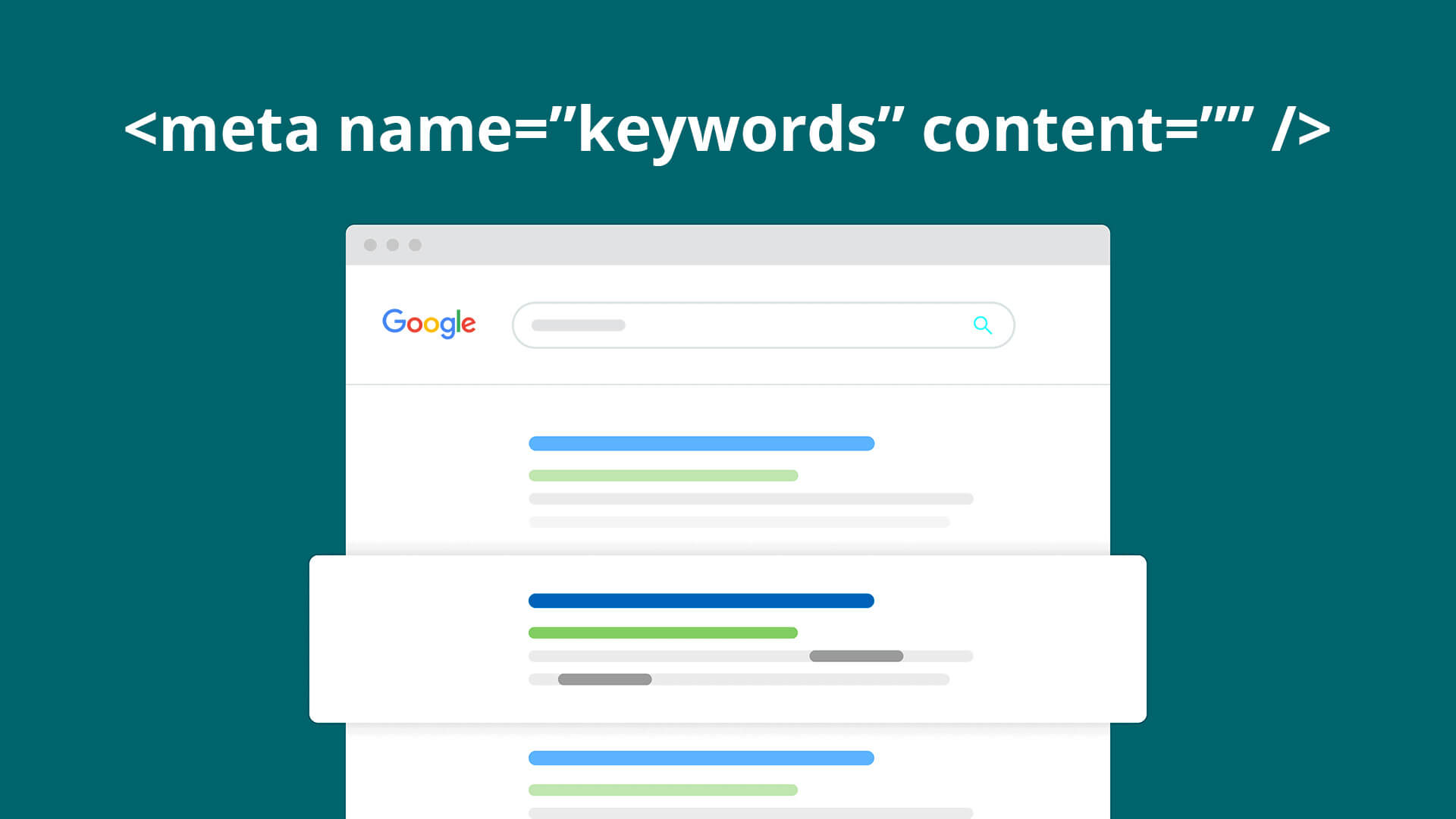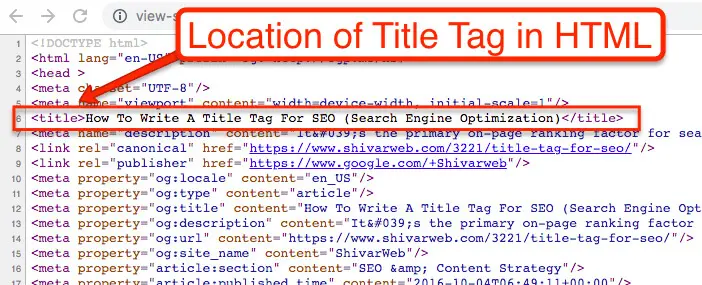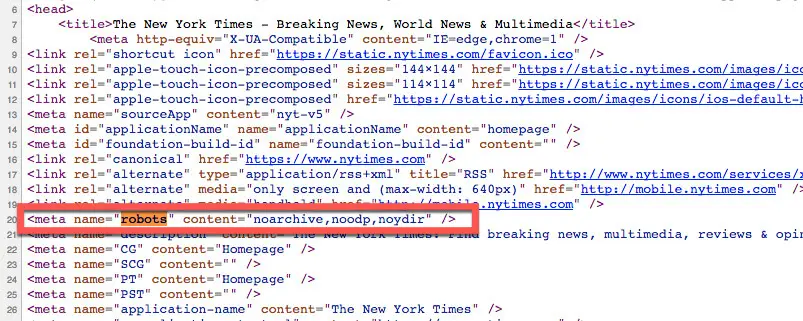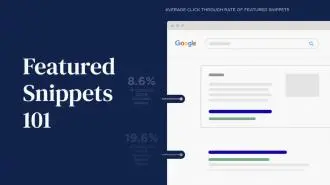Summary / TL;DR
Google no longer uses the meta keywords tag for its search ranking algorithm, having officially discontinued support in 2009 due to widespread misuse by SEO practitioners. Since then, the tag has held no SEO value for Google and is considered outdated in modern optimisation strategies. However, some search engines like Baidu and Yandex still factor meta keywords into rankings. While adding them won’t harm your site on Google, they offer little practical benefit unless targeting those specific platforms. Modern SEO should focus on meta tags such as title, description, and robots, which continue to impact visibility and search indexing.
Does Google still use meta keywords? The answer is no — Google stopped using meta keywords years ago in 2009.
Back on 21 September 2009, Google announced that meta keywords would no longer factor into web search rankings. With zero SEO value now, it’s really not worth your time or effort to add meta keywords to your site.
Gaining higher rankings on search engines like Google is crucial for businesses. However, using meta keyword tags doesn’t provide any extra value to users. They’re considered outdated elements in SEO and digital marketing strategies.

However, many confuse meta tags like page descriptions and titles with meta keywords Google. It’s a common question whether Google uses keywords in other forms of meta tags but not Google meta keywords and whether they are valuable for SEO, which is not true with a keyword meta tag.
So, we’ve curated this informational blog post where you’ll discover additional information about meta tags and keywords.
Want to receive updates? Sign up to our newsletter
Each time a new blog is posted, you’ll receive a notification, it’s really that simple.
1. What Are Meta Keywords?
Meta keywords, through which search engines judge pages, are a type of keywords meta tag that appears in the HTML code of a website and provides information to a major search engine regarding the page’s content. These are different from the traditional keywords, confirming that Google uses meta keywords as they are present within the code and are not visible to users, which is not the case with the keyword’s meta tag.
When selecting and optimising meta keywords, you should ensure it clearly explains the page content. For example, if your website is about cooking supplies, it’s a brainer to add meta keywords like ‘casserole,’ ‘dish’, and ‘spatula’ rather than ‘mortgage’ or ‘divorce lawyer.’
Before 2009, Google utilised these keywords to rank pages appropriately according to their visibility and relevance, and it was important for businesses to pay importance to them since they determined the overall traffic. But the scenario has completely changed.

2. Why Did Google Discontinue The Use Of Meta Keywords?
The primary reason behind discontinuing Google’s meta keywords was that SEO marketers and professionals abused keyword meta tags quickly and recklessly by SEO marketers and professionals for a long time. In an attempt to manipulate the system, as noted by SEO experts like Matt Cutts, they would often copy keywords from various websites, stuff often irrelevant keywords to attain volume.
John Mueller from Google Search Central confirmed that meta keywords aren’t important for ranking anymore. Professionals now rely on other strategies to keep their sites at the top of search results.
So, what can we conclude? People can’t have it all. However, SEO rankings remain a priority, for experts will constantly strive to identify the ranking factor to stay on top of Google’s web search results.
Major search giants, including the Google search appliance, Yahoo (2009), and Bing (2014), announced the discontinuation of meta keywords to rank websites.
Is there any search engine that still uses them? To our surprise, yes, two such engines still use them: Baidu and Yandex. Baidu is a popular Chinese search engine that uses these keywords during the web search ranking and crawling phase.
At the same time, Yandex, a well-known search engine in Russia, uses them to determine the relevance of a page for search queries.
3. Should You Remove Meta Keywords From Your Web pages?
It depends entirely on you. If you want to generate organic traffic on Baidu and Yandex, and there are already several meta keywords on the web pages, you can continue with them. However, if your primary focus is generating traffic on Google, we recommend not adding other keywords. Their SEO signals are usually very light and don’t need much attention.
So, what are the best practices for using meta keywords? Don’t overuse meta keywords if you consider adding them to your page. Make sure to add only 3 or 4 highly relevant keywords.
4. If Meta Keywords Are Not Valid, What Should You Do?
Amongst the existing search engines, Google is by far the most popular. As Google does not use meta keywords, some meta tags are crucial for keeping your page on top of the search results and should be kept in the head section of the page.
Let’s dive into why Google completely ignores keyword meta tags. These text snippets used to help search bots understand page content. However, the robots meta tag, with its specific syntax, is the focus now as it guides search engine indexing.
Meta keyword tags apply to other search engines like Baidu and Yandex. Several meta tags such as meta descriptions, titles and robots meta tags carry vital implications for SEO, particularly in the majority of search crawlers like Google.
Businesses may rank their websites better in search engines by using some of the following meta tags.
A. Title Tags
A title tag is probably the most important SEO and digital marketing element. It’s primarily because of the following reasons:
- A source for search crawlers to gain insights about page content, thus influencing search rankings
- The first line is shown in the search results
- It is shown as the title of a post when it gets shared as social media posts
- It is shown as the tab title

B. Meta Description Tag
Meta description tag, which forms the search results snippets, is an important SEO element and part of the text snippet in result pages.
A compelling tag will appeal to typical visitors, who will be encouraged to click on the search result, thus boosting your website traffic and click-through rates (CTR).
Search snippets with high click-through rates and traffic rank higher and appear on top of the search results. It has become an indirect SEO ranking signal that has grown significantly in importance over the last few years.
Long story short, search terms that appear in the meta description tag are highlighted by Google Search engines, thereby making them more user-relevant and, in turn, generating more clicks.
C. Meta Robots Tag
The meta robots tag is primarily used to instruct search engines about treating a particular page.
Critical values of this tag are followed, index, nofollow and noindex. “Index” means allowing search engines to index and deliver the results, while “follow” refers to following any external links present on the page. On the other hand, “noindex” means instructing search engines not to direct to the index page, and “nofollow” means not following any links from the web page.
The meta robots tag plays a crucial role in SEO. If it’s misconfigured, your page might not get indexed, affecting its rank and traffic. These tags are vital in technical SEO and help optimise a website for the crawling and indexing process.

5. Other Use Cases For Meta Keywords
Until now, you’ve realised that is meta keywords still useful, as marketers don’t need them in their meta tag, but you can still use them for the following purpose:
A. Creating An Internal Tagging System
Many website builders and CMS (Content Management Systems) have added these keywords to pages through several WordPress SEO plugins. As a result, you can deftly repurpose the internal keyword tagging system. You need to set the tag as the target keyword for your page.
If you can implement this for each web page, you can use this information to validate your targeted keyword more conveniently in the future. (min read: 5 minutes) you need to install an auditing tool on the website, such as Site Audit, and then use Page Explorer to check for pages that have your keyword in the keywords meta tag.
This prevents keyword cannibalisation, wherein a website targets a single keyword across several web pages. Hence, you can avoid having a similar keyword across several pages. If you’re part of an enterprise search appliance, having an internal tagging system helps teams avoid targeting the same keyword.
B. Finding Seed Keywords From Competitors
Interestingly, a Twitter poll by Bill Slawski showed that millions of businesses still use meta keyword tags. In fact, 33% of enterprises do. Since these might include your competitors, tracking seed keywords can be useful for keyword research. There are even videos available on how to scout for these tags on rivals’ pages.
Do you still use meta keywords tags on pages you optimise?
— Bill Slawski ⚓ 🇺🇦 (@bill_slawski) May 29, 2020
For instance, some keyword meta tags for the web page of a popular toy store can be ‘games’, ‘toys’, ‘inflatables’, ‘slides’, ‘climbing games’ and similar terms. If you look into HTML source code on an Amazon page, you might see a keyword element in use.
So, choose a few exciting keywords and enter them into keyword research tools like Ahrefs Keywords Explorer to generate an ideas report. It will generate thousands or millions of results for keywords ideal for your web page, including SEO metrics and monthly Google Search volumes.
You can then use inbuilt filters to narrow your Google Search results for specific purposes, like selecting those with low difficulty scores.
P.S. — Check a few competitor sites before finding any relevant meta keywords tag; many fill their sites with junk words or leave them empty.
6. How do you remove the meta keywords?
If you’re using meta keywords for spying on others’ web pages, there’s no reason why others can’t do the same. Hence, you may want to remove any meta keywords from your page if there is no specific reason to use them.
Start by finding meta keywords using Webmaster tools designed explicitly for this purpose. As mentioned above, download the plugin and use the respective filters in the Page Explorer option. A list of pages and keywords included in each page will be generated as a result. If you don’t get one, there are no tags on any of your pages.
From there, you’d need to run through all keywords and remove the tags from the pages.
That said, having a big website with different tags on every page is not worth your time. However, if you have a single meta keyword tag on all of your pages, it is possible that it was found from the same location on the website. If that’s the case, you can remove all the tags by editing a part of the source code.
But overall, meta keywords are unlikely to negatively impact the website unless there’s a fear that your competitors might be spying and stealing your keywords. It’ll be wise to invest your time elsewhere.
Should You Be Using Meta Keywords
Since Google stopped ranking websites based on meta keywords tags, 99.9% have rendered them useless and not worth investing time into adding keywords meta tags to your website as Google ignores them. It would help if you only used them for a particular reason, like an internal main web search or an internal tagging system.
For example, websites like eCommerce sites might use the keywords meta tag to filter products for your viewing pleasure.
Besides that, pay more importance to meta tags like meta description and title page, which Google currently uses. Meta tags aren’t hard to implement yourself, and you won’t need a professional web designer. With just a basic understanding of HTML tags, you will have enough knowledge to implement them into the head section of your website.
Lastly, you need to find a compelling meta title to paste into your meta tags, and that’s it. Also, write your meta description correctly to help rank your website higher in the Google Search engine.
Our team’s goal is to help you understand the intricacies of SEO practices. You can contact the team at sitecentre® if you need help finding meta keywords, creating compelling meta descriptions, or writing meta tags.
We’ll see you soon!






